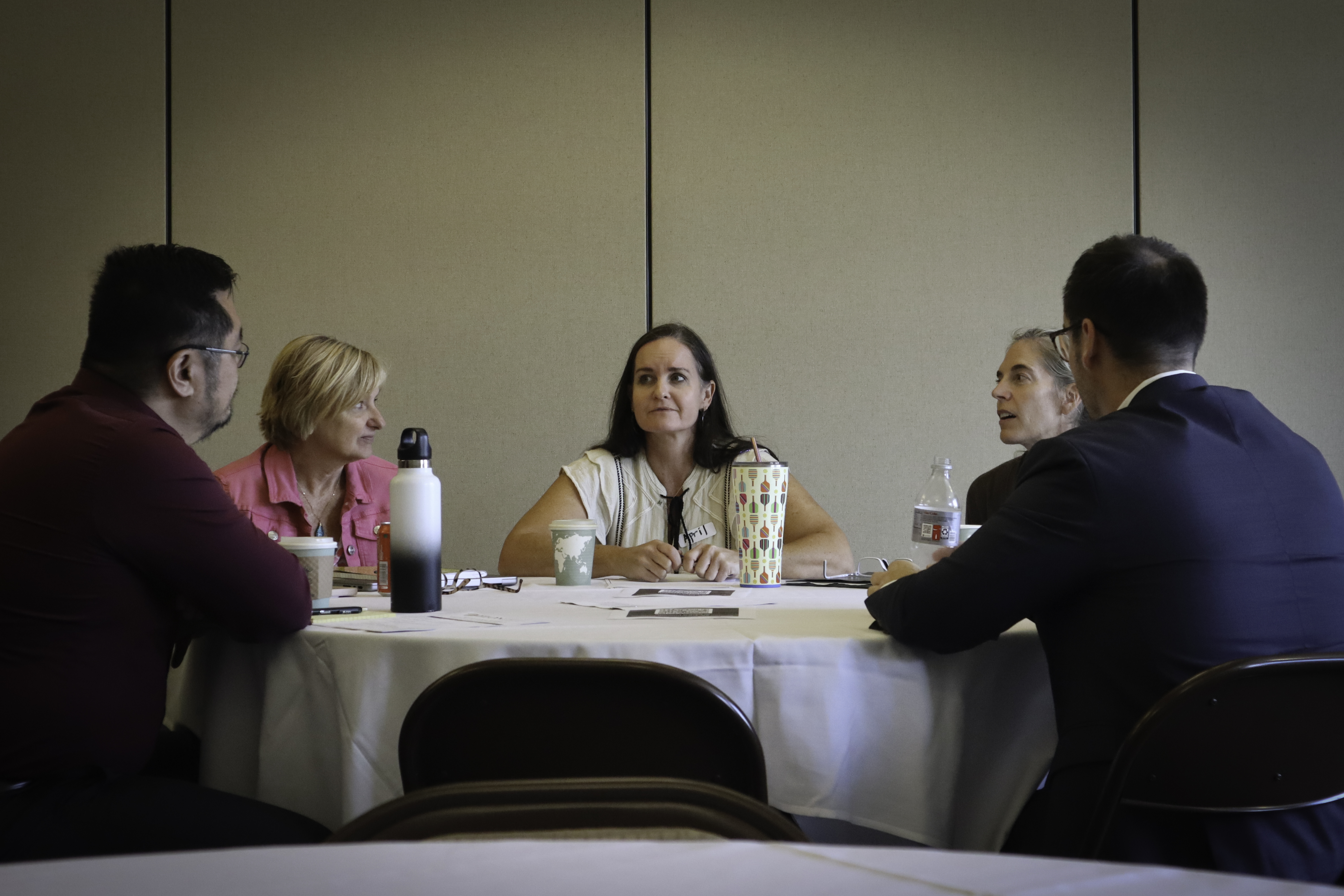On Aug.. 15, 2024, faculty and staff gathered at Elon University for the fourth annual Global Pedagogy Workshop, focusing on how study away programs can better prepare students for the complexities of a rapidly changing world.
This year’s Global Pedagogy Workshop, themed “Sitting with Discomfort: Helping Students Navigate the Complexities of the World through Study Away,” brought together educators to explore how study away experiences can be redesigned to foster resilience and empathy.
The daylong workshop on Aug. 15, co-sponsored by the Isabella Cannon Global Education Center (GEC) and the Center for the Advancement of Teaching and Learning (CATL), was designed for faculty and staff who lead study away programs, though it was open to all interested in enhancing global learning.
Following welcome remarks from Dean of Global Education Nick Gozik and Provost and Executive Vice President Rebecca Kohn, the day began with a thought-provoking keynote by Anu Taranath, a renowned educator and author of “Beyond Guilt Trips: Mindful Travel in an Unequal World.”
Taranath’s address, titled “Mindful Travel in an Unequal World,” explored the challenges and opportunities of navigating cultural differences and inequities during study abroad experiences. She emphasized the importance of deepening awareness of global inequities and preparing students for authentic and empathetic interactions with diverse communities.
Following the keynote, the workshop featured four breakout sessions tackling various aspects of global education:
- In “Cultivating Empathy and Understanding in Undergraduate Sojourners,” Mathew Gendle, professor psychology, and Amanda Tapler, senior lecturer in public health studies, focused on methods for cultivating empathy in students before, during and after their study away experiences. They drew from Taranath’s book to develop strategies for students to connect across cultural differences and manage the inevitable discomfort that comes with navigating new environments.
- Brian Pennington, professor of religious studies and Megan Hernandez-Greene, program coordinator at the Global Education Center, addressed how to effectively integrate and respond to religious encounters in global learning contexts in “Encountering Religion in Global Learning.” This session provided insights on how study away leaders can turn unexpected religious interactions into valuable learning opportunities.
- Through “Exploring Identity Through Data in Global Contexts,” Crista Arangala, professor of mathematics, facilitated a session on using data to explore and understand identities within host communities, connecting global education to Elon’s Data Nexus initiative. Participants engaged with practical activities designed to enhance pre-departure and onsite courses, fostering deeper insights into personal and cultural identity.
- In “Exploring the Intersections between Sustainability and Study Away,” Elaine Durr, senior director of sustainability, Kelly Harer, associate director of sustainability for education and outreach and Evan Small, lecturer in wellness led a discussion on the environmental impact of study away programs. They shared strategies for incorporating sustainability into global education and provided a reflective space for participants to consider the carbon footprint of their programs.
“The Global Pedagogy Workshop serves as a powerful reminder of the transformative potential of study away programs,” said Gozik. “By addressing the discomforts inherent in navigating diverse global contexts, educators can help students develop the resilience and empathy needed to tackle today’s complex challenges.”
Gozik added that this workshop situates ideally within Elon’s new global strategic plan, launched this past January, by “deepening global experiences for both students and program leaders.”
“Having read and discussed Dr. Taranath’s insightful book with colleagues and students over the past few years, I was eager to meet her in person and learn more about her pedagogy,” said Maureen Vandermaas-Peeler, professor of psychology and director of the Center for Research on Global Engagement.
Vandermaas-Peeler added that Taranath’s “positive, constructive approach to open dialogue with students about challenging issues in global contexts is inspiring and the workshop was a great opportunity to discuss case studies and learn from her experiences.”



